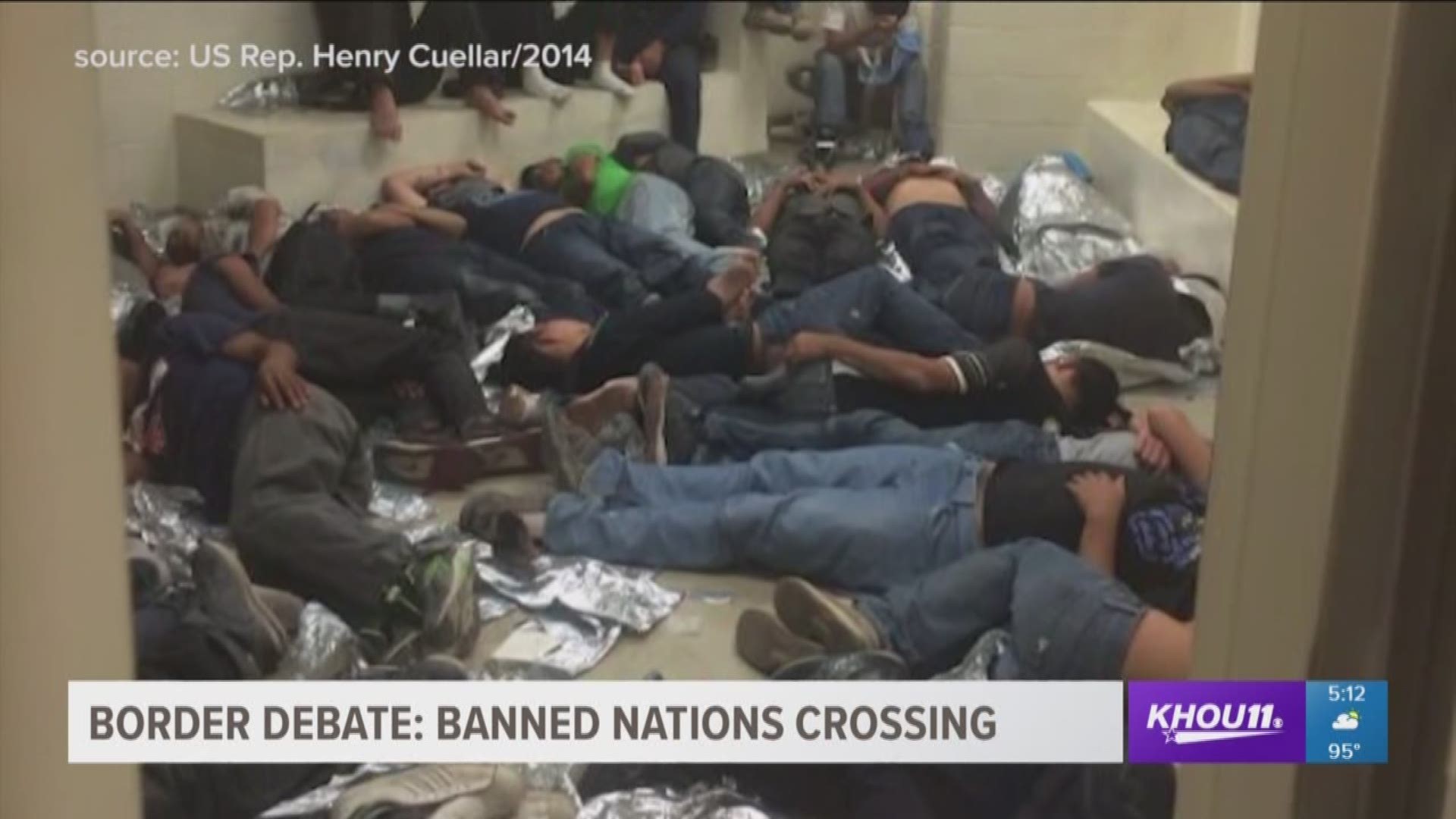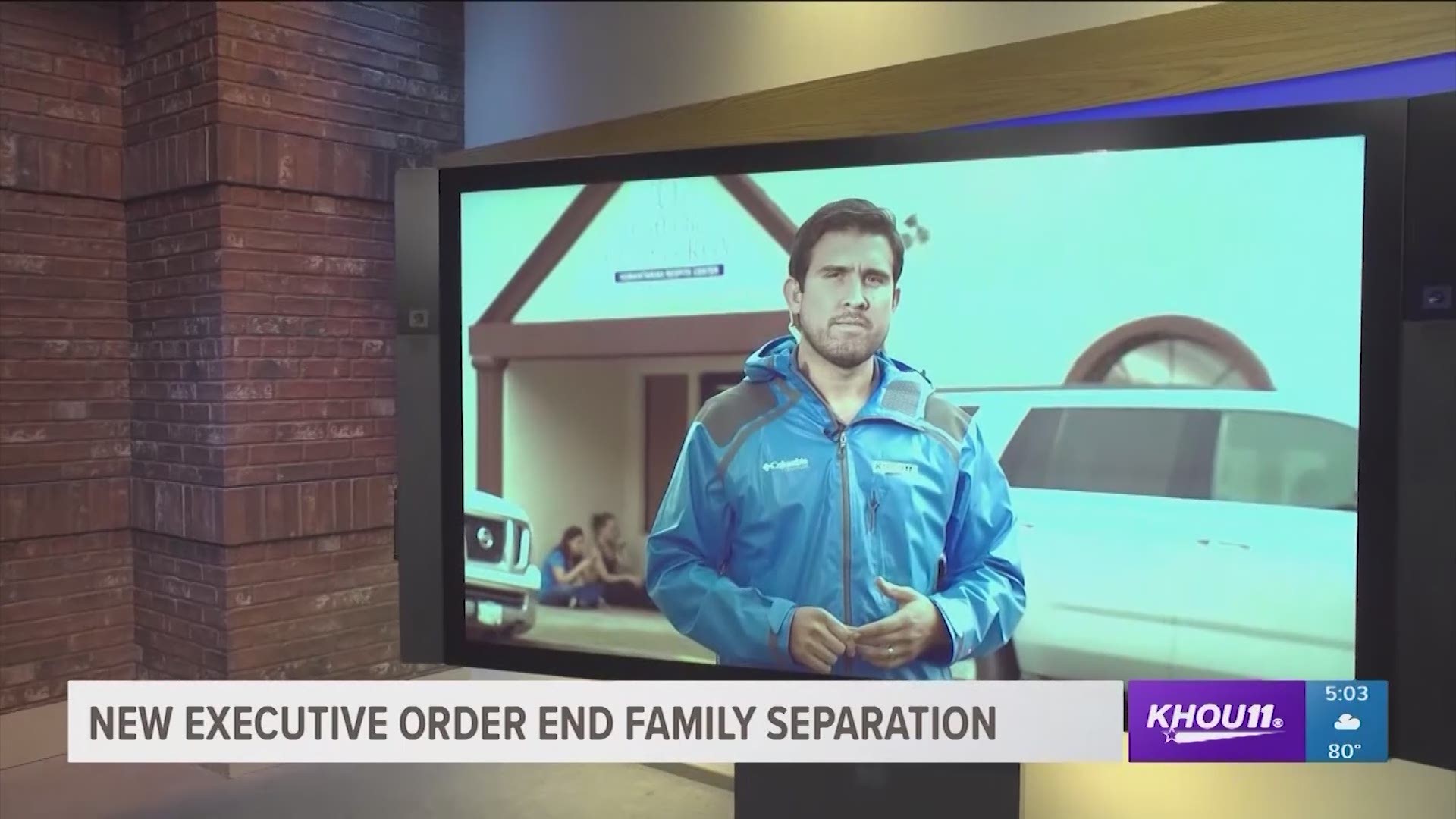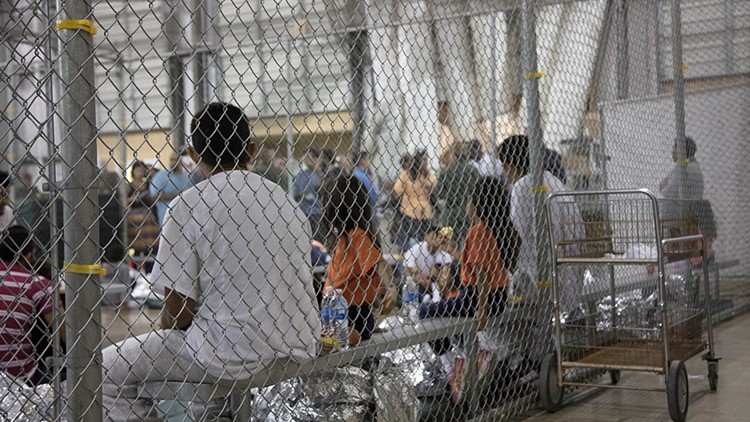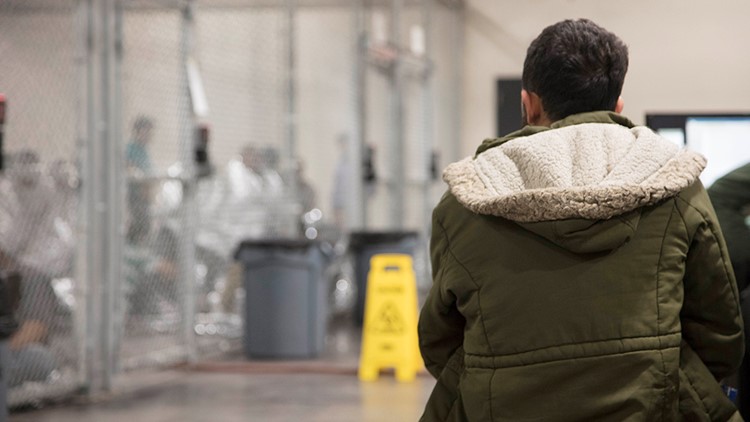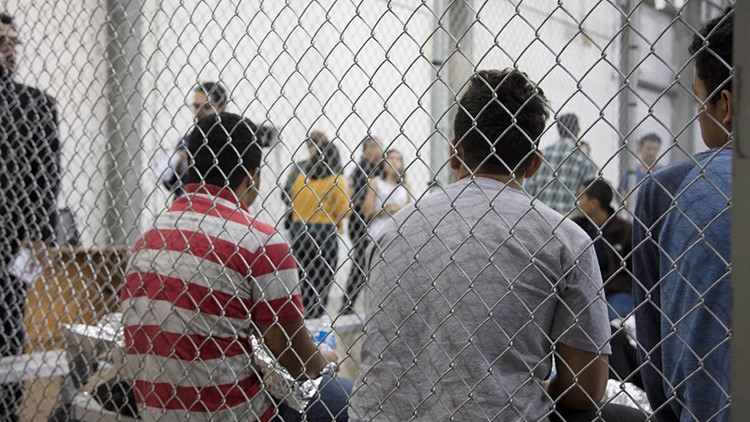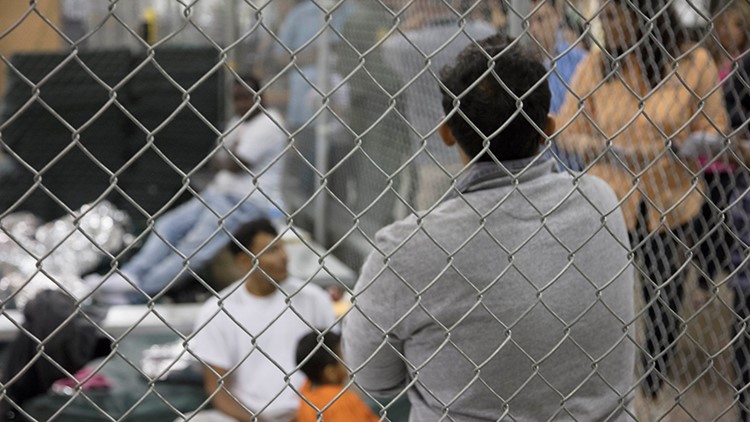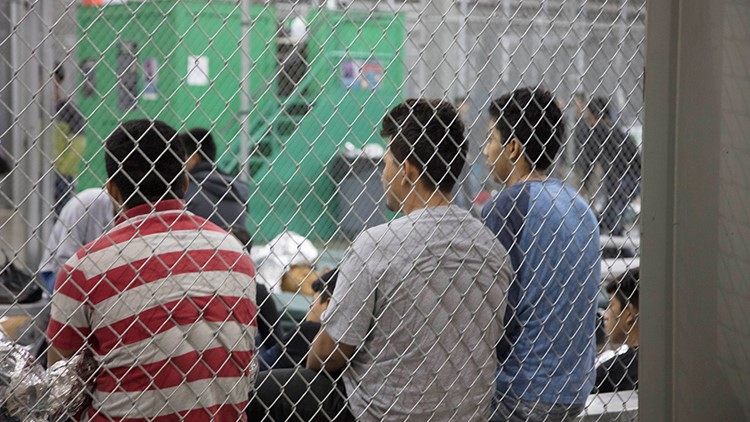MCALLEN, Texas- It's not only families illegally crossing the border, Tuesday the U.S. Border Patrol reported it's seeing an "uptick" of people coming from at least one country banned from travel to the United States of America.
The day before Americans celebrate Independence Day, people in Mexico positioned themselves along the banks of the Rio Grande, waiting for an opportunity to illegally cross into the U.S., so they can chase their very own American dream.
To better understand the current immigration crisis, KHOU 11 News is looking back at the past, through the eyes of Border Patrol Agent Chris Seiler, the Deputy Patrol Agent in Charge of the McAllen Station in the Rio Grande Valley Sector of the U.S. Border Patrol.
"So, there’s a number of similarities in the border problem that’s going on today," said Seiler during an interview with KHOU 11 News Reporter Melissa Correa. "It’s a wave of people coming north that, in 2014, the valley wasn’t really prepared for."

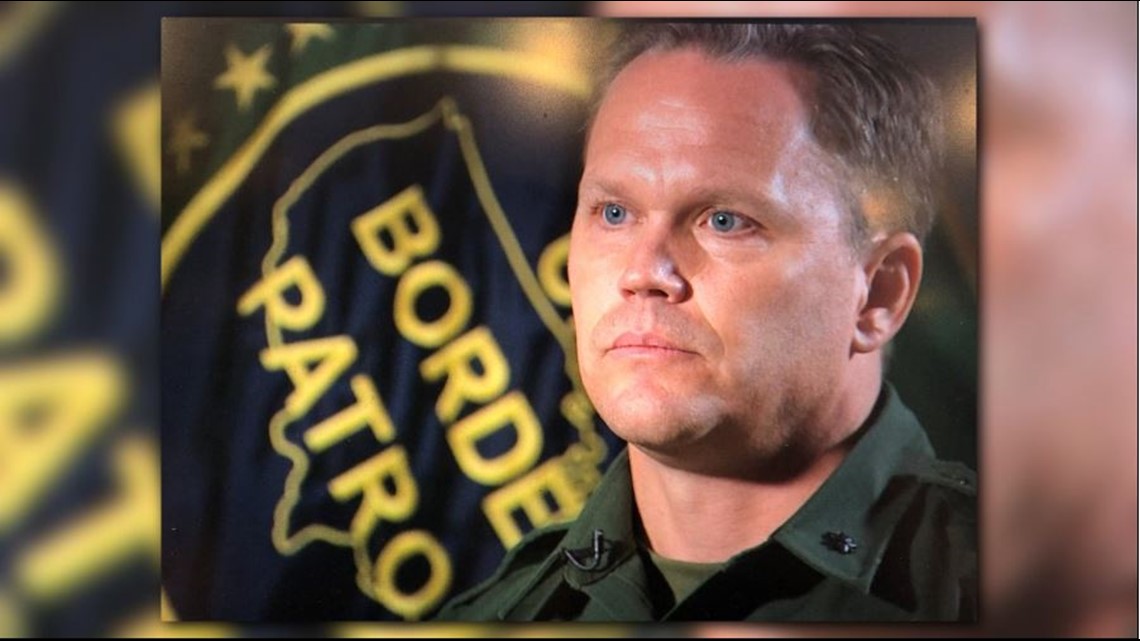
In 2014, south Texas was overwhelmed by thousands of children who crossed into the U.S. without their parents. Authorities call them unaccompanied minors. A majority of them, then, came from counties other than Mexico; mostly Central American countries.
In 2014, the children were packed into sallyports at various Border Patrol stations. The children were grouped in with men and women, as Border Patrol agents worked to process everyone into a federal database.
In the summer of 2014, there just wasn't enough room. The federal government had to bus or fly people to other Border Patrol stations. Stations in other areas of the country that weren't dealing with a surge of people.
Correa asked, "are we still at that point?"
"We’re not at that point yet. Some of the high marks in 2014, we were almost upwards at a 1,000 or 1,500 [people] a day," recalled Seiler. "Now, high days are about 700 [people] a day. So, we’re not there, but we do have those systems and processes in place. And, if you check the news, the D.O.D. [U.S. Department of Defense] is talking about it, and it’s being talked about in Washington D.C."
As a result of so many unaccompanied minors, the federal government opened the Child Processing Center along Ursula Avenue in McAllen. Agents there exclusively process families and children.
"Typically, the people we apprehend are only in Border Patrol custody for about 48 hours." explained Seiler. "People will continue to come from Central America, South America, people from Africa and other countries will continue to come in here. We’re seeing an uptick, recently, in Yemenese coming in the last few weeks," said Seiler.
"Because paint me the picture of what life is like for some of these people who've spent decades living along the border. Sometimes, in fear of their lives either by smugglers or the cartel," asked Correa.
"Without a doubt, the cartels, the smugglers, they have no value of any life. A person being smuggled is a commodity to them. If that person dies, whether it be in the river, or up in the ranch lands, north of Falfurrias, they know that there is going to be more commodity for them the next day," said Seiler. "Just last week we had some smugglers that were bringing a woman and her two children across in a raft. They didn’t think that they had paid enough. So they threw the 10-year old boy off the raft and they wanted to rape the 12-year old."
"This happened here in the valley?" Seiler nodded before saying, "and everyday we see, when women come in to the Central Processing Center, and they’re being processed by Border Patrol Agents, and there’s allegations of being in stash houses and being sexually abused, and in Mexico and being sexually abused, and that doesn’t get out. And that weighs a lot on the agents, because not only do you have to process this person and do your job, you also have to be a human about it, right? And take that home to your family."
"If this is where we are in 2018 and Congress doesn't do anything to change that [immigration laws] what is the future here in the valley?" asked Correa.
"It’s the same," said Seiler. "Unfortunately. It’s the same. And, In two months, three months, two years, these people will go back to their lives in middle America and the Valley will still be dealing with this issue."
Listen to Melissa Correa's conversation with an immigration attorney.
RELATED ARTICLES:

